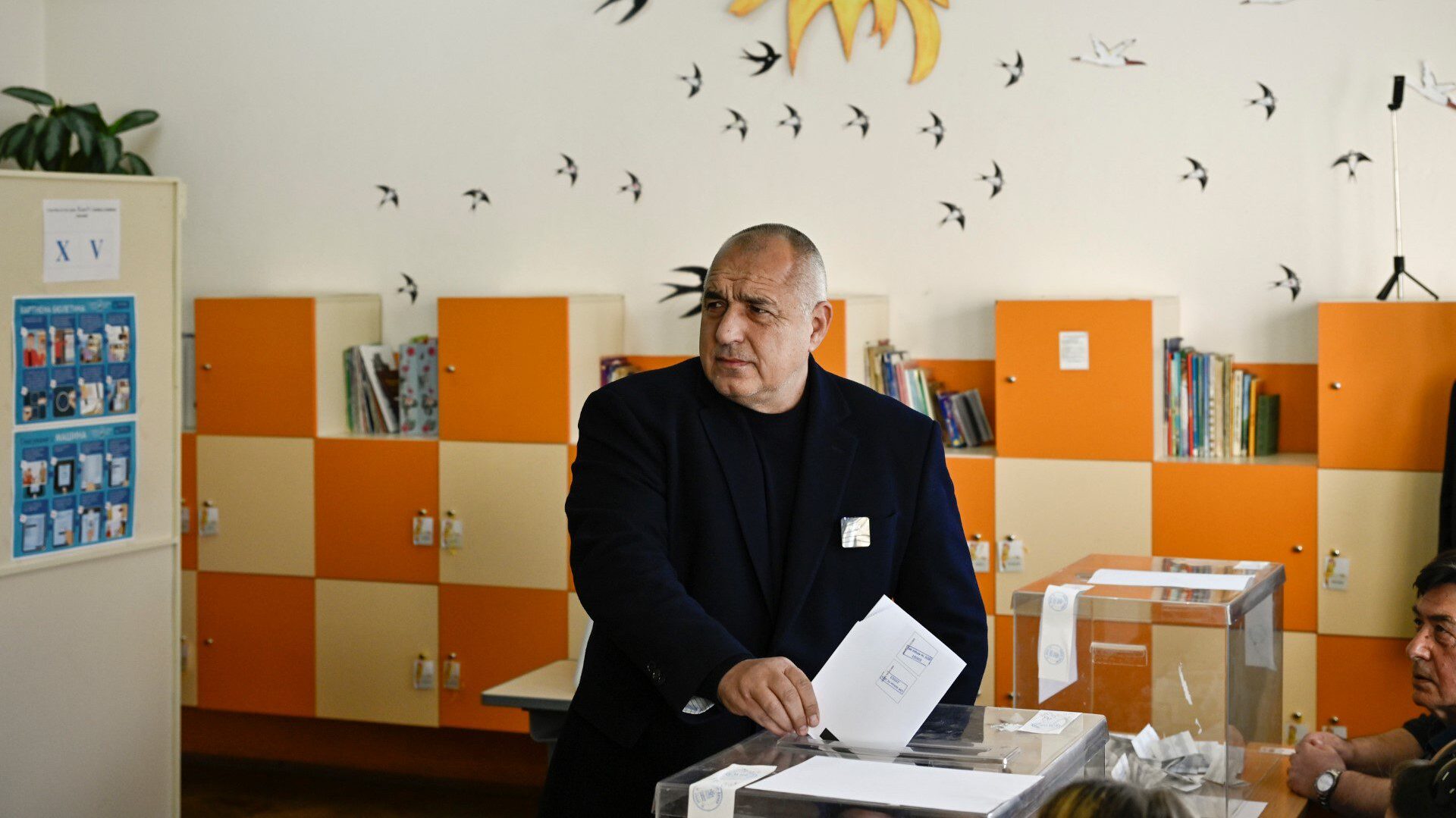
The head of the GERB party and former prime minister Boïko Borissov casts his ballot at a polling station during the country’s parliamentary elections in Sofia on April 2, 2023. Bulgarians vote on April 2, 2023, in their fifth general election in two years, a record in the European Union, amid deep divisions over the war in Ukraine. Russia’s invasion of its neighbour has deepened the political crisis that has engulfed Bulgaria since 2020, the worst instability since the fall of Communism.
Photo: Nikolay DOYCHINOV / AFP
For the fifth time in two years, Bulgarian voters went to the polls on Sunday, April 2nd to elect new deputies and try to break the political deadlock in which their country has been plunged for many months, due to its inability to find a stable government majority. Unfortunately, the first results published suggest that once again no majority is in sight.
Sunday’s polls showed the two favourite parties neck and neck. The centrist, pro-European, anti-corruption party Continuing the Change (Продължаваме промяната, known as PP), led by Kiril Petkov, was polling at around 24-25%, while the centre-right party led by former prime minister Boïko Borissov, traditionally labelled conservative, Citizens for European Development of Bulgaria (Граждани за европейско развитие на България, known as GERB), was polling at around 26%. It is likely that only one point separates the two formations. However, these are partial results, since the counting, as of 14:30 April 3rd, is not yet complete. The final figures should only be known later this week.
Abstention was very high, although lower than in the previous vote: turnout is estimated at only 40%.
Bulgarian society is unable to find a new political balance, and the international crisis surrounding the war in Ukraine has aggravated the dissensions between pro-Russian and pro-European tendencies. The pro-Russian far-right party Renaissance (Възраждане) has made significant progress since the last elections, rising from 10% in the October 2022 elections to 14.4% in this new vote. This young nationalist party, born two years ago, is in third place, ahead of the Turkish minority party, the Movement for Rights and Freedoms (DPS), which has 13%. The Socialist Party, heir to the former Bulgarian Communist Party, received only 9% of the vote—its worst result ever. The anti-system party, There is Such a People (Има такъв народ, known as ITN), led by TV host Slavi Trifonov, a temporary PP ally in 2022, received only 4%.
No single party is likely to achieve a majority. The formation of a viable coalition still seems remote, despite the new elections. The fault lines between the different political formations make combinations seem impossible, whether on the issue of the fight against corruption—a source of conflict between GERB and Petkov’s party—or on the position towards Russia, which isolates the Renaissance party from GERB or the PP, which are openly pro-European.
“We have a winner but certainly not a new government,” summarised the independent daily Sega on Monday, April 3rd. This winner would be the party of former Prime Minister Boïko Borissov, who is not in a position to govern alone. The only way out of the crisis would be for him to obtain a rapprochement with the PP. For the moment, the latter does not seem to be in favour of this.
